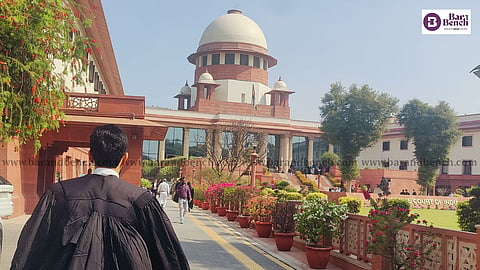The Supreme Court on Wednesday expressed concern over an increasing trend in which subsequent Benches of the Court set aside decisions of earlier Benches comprising a different composition of judges [SK MD. Anisur Rahaman v The State of West Bengal & Anr].

